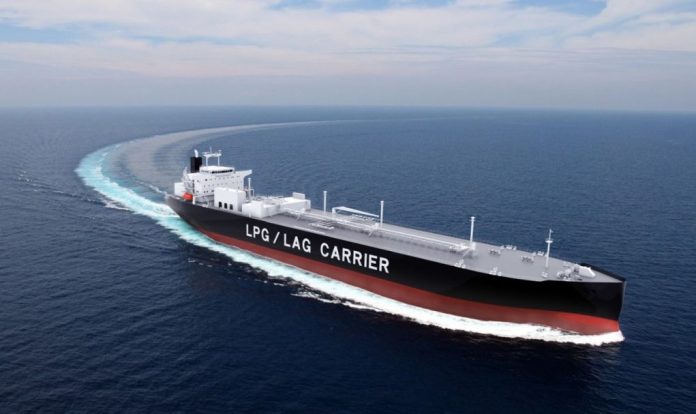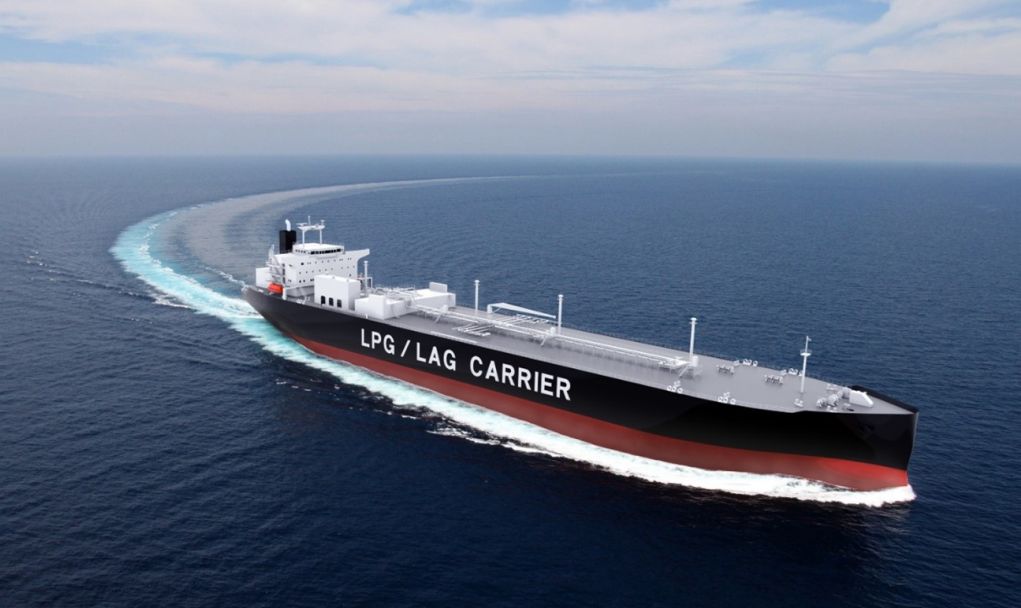
(www.MaritimeCyprus.com) Leading Classification Society ClassNK has issued an Approval in Principle (AiP) for the conceptual design of an ammonia-ready VLGC developed by Mitsubishi Shipbuilding Co.,Ltd. of the Mitsubishi Heavy Industries Group.
Ammonia is expected to be used as ship fuel for decarbonization since it does not emit CO2 when burned. Meanwhile, taking adequate safety measures are imperative due to its characteristics of being toxic to humans and corrosive against materials, and ClassNK has worked on development of standards and certification. In 2021, ClassNK published its “Guidelines for Ships Using Alternative Fuels” to minimize the risks related to ammonia-fueled ships for the ships, crew, and environment by stipulating requirements for installation, controls, and safety devices.
For Mitsubishi Shipbuilding’s conceptual design converting LPG-fueled VLGC’s main fuel to ammonia, ClassNK reviewed it based on Concept Design category of its “Guidelines for Ships Using Alternative Fuels” Annex 1. Having verified the conformity to their requirements as a future ammonia-fueled ship, ClassNK has issued an Approval in Principle (AiP) as an ammonia-ready VLGC.
ClassNK will continue participating in innovative initiatives related to decarbonization. By incorporating the expertise obtained from the collaborative work with frontrunners into its rules and guidelines, ClassNK will support the decarbonization of the entire industry.
Approval in Principle (AiP):
At the initial stage of designing or before the specific target ship to be implemented is decided, the design is examined based on the existing regulations such as international conventions and ship classification rules, and an Approval in Principle (AiP) is issued as proof of conformity with requirements. It also prevents rework of regulatory aspects in the post-process, shortens the examination time at the time of class registration, and can be used as a technical basis for external appeal of the design status.
Source: ClassNK














